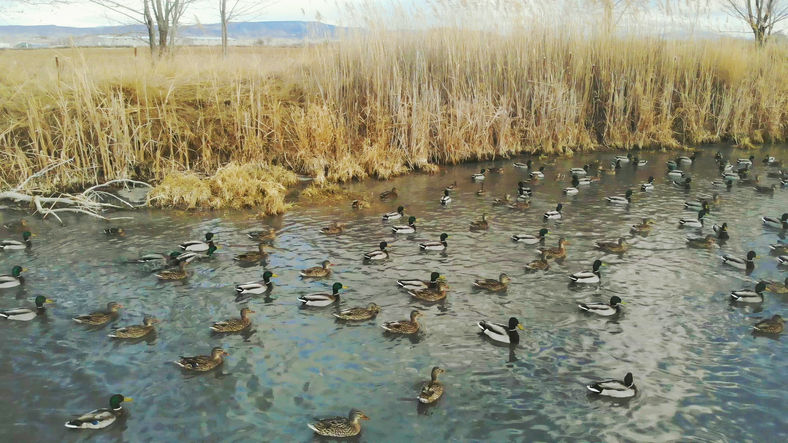Colorado has some excellent native duck hunting areas, and if you are an investor or a hunter looking for your own little slice of wildfowl heaven, read our guide about what to look for in a duck hunting tract.
Research Your Location
There are four major flyways in North America, and not all waterfowl move through all of them. Colorado is part of the Pacific and Central flyways, and Colorado Parks and Wildlife can help you find the quarry that you’ll be hunting, which will determine the type of property you should buy.
There are several habitats that are optimal for duck hunting, and the flyway zone you intend to hunt in will determine the habitat best suited for a specific quarry. Once you know which waterfowl you want to hunt, you can search for property that best fit their habitat.
Talk to Your Neighbors
The best information can come straight from the source. Find out if there are hunters among the landowners adjoining the property you are interested in and how well they do each season. Large groups of hunters could mean access to fewer birds, even if the property you want seems perfect for hunting. Also find out if there are public hunting lands nearby, like wildlife management areas or refuges. When public-land hunters are out en masse, ducks will look for safer, nearby areas, such as your land.
Identify Food Sources
If there is no food, there will be no ducks, regardless of how duck friendly your habitat looks. You’ll want to make sure your property has, or can have, the appropriate food for waterfowl in your flyway.
Consider Renovations
You may want to cultivate the land to provide better sources of food to attract more ducks. Likewise, you may also need to build blinds and plant some land. Finally, you may want to look into building a cabin or other structure on the property, especially if you intend to rent it out to other game hunters.
Make it a Year-Round Commitment
Hunting land isn’t cheap, and it will require regular maintenance. Try to plan ways to use the land outside of hunting season. You’ll be making monthly payments on the land whether there are ducks or no ducks, so make the property a labor of love all year. If all you want the land for is to hunt, it’s considerably cheaper to just do guided hunts on someone else’s property.
Find Other Ways to Make it Pay
Owning hunting land can be pretty costly, but there are a few ways to help recoup some expenses. For instance, the Natural Resources Conservation service has a wetlands easement program where landowners receive technical assistance and cost-share funding to restore wetlands. You can also sell some timber on the land or lease a portion of the land to a local farmer. While it won’t garner a fortune, it will at least help offset monthly costs from owning the property.
Protect Your Investment With Farm Bureau Insurance
Insure any structures, vehicles, and equipment you have on your hunting land with an insurance policy from Farm Bureau Insurance. To learn more, speak with a local agent near you using our Agent Finder.

